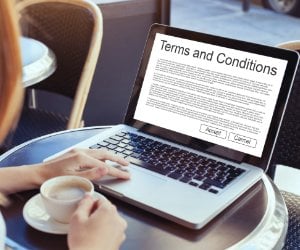With Match Week approaching, this is an exciting and hectic time. As you prepare for the next phase of your medical career, it is also important to understand legal issues involved in the Match®, administered by the National Resident Matching Program (NRMP)®. As part of the online enrollment process for the Match, residents accept the NRMP’s Match Participation Agreement (MPA). Residents cannot register for the Match unless they accept the MPA. The MPA is a binding contract exceeding 30 pages. Many residents never read the MPA during the online enrollment process. Others may skim the MPA, but not read the terms carefully. Lurking within the MPA, however, are numerous restrictions on what residents may do before, during, and after Match Week. Applicants who fail to comply with those restrictions in the MPA may commit a match violation, which could lead to substantial penalties and adverse consequences for your medical career. Therefore, it is essential to be aware of your obligations under the MPA and to assure your compliance with the MPA.
Many Ways to Commit a Match Violation
The MPA prohibits a variety of actions by residents. For example, the MPA restricts residents from backing out of their Match commitment. While the MPA allows a resident to request the NRMP for a waiver releasing the resident from a Match or SOAP® position, the resident may not leave his/her residency program or communicate with any other residency program unless and until the NRMP grants the waiver request. In addition, the MPA prohibits residents from withdrawing from the Match after the rank order list certification deadline, and even prohibits residents from contacting other programs after the rank order list certification deadline. Residents may not contact programs to which they have applied until after the Match results are announced. Furthermore, the MPA prohibits residents from disclosing any confidential Match information contained in the NRMP’s “R3”® system. If a resident shares his/her NRMP code number or password with a person who is not registered for the Match, that is also a Match violation. Moreover, residents who provide false, misleading, or incomplete information to residency programs during the Match process – including in applications, letters of reference, or interviews – commit a Match violation. These are only some of the ways to violate the MPA. And the MPA has a “catch all” provision that allows the NRMP to declare a Match violation if residents fail to “conduct their affairs in an ethical and professionally responsible manner.” That provision allows the NRMP to declare that a wide variety of conduct amounts to a Match violation. Many residents report they were unaware of the restrictions contained in the MPA.
The Process for Challenging Match Violations
The MPA gives the NRMP the power to declare that a resident has committed a Match violation. The MPA allows a resident to challenge the NRMP’s decision imposing punishment for a Match violation, but only by the resident initiating arbitration that is strictly controlled by the MPA and by the NRMP. The arbitration must be conducted in the NRMP’s office in Washington, DC, and under the rules of the American Arbitration Association (AAA). AAA arbitration fees can amount to nearly $10,000. If the resident wants a lawyer to assist with the arbitration, the cost can be substantially more. Many residents simply cannot afford arbitration, even if the NRMP’s punishment could be reversed by arbitration. The arbitration is conducted by one arbitrator. The arbitrator must uphold the NRMP’s decision of a Match violation unless the resident presents “clear and convincing evidence” that the NRMP’s decision is wrong. The burden of proof is on the resident, not on the NRMP. The arbitrator’s decision is final and not appealable, even if the decision is wrong. Residents have no right to go to court and no right to have a jury hear their side. Residents are often unaware these procedural protections were waived in the MPA.
Harsh Punishment for Match Violations
If residents do not challenge the NRMP’s decision that a Match violation was committed, or if residents fail to reverse the NRMP decision in arbitration, there are several potentially onerous consequences for residents. The NRMP can withdraw residents from the Match before they are even matched to a residency program. In addition, the NRMP can prohibit residents from participating in future matches – in some cases, permanently. If a resident has matched to a program, the NRMP can prohibit a resident from beginning the program or, if he/she already started the program, the NRMP may suspend the resident’s participation in the program. All of these punishments delay residents from completing their residency training.
One additional consideration: if the NRMP’s punishment is not challenged, or if it’s upheld in arbitration, the NRMP may list residents as “Match violators” in the NRMP’s records. Residents may be required to disclose the NRMP’s disciplinary action in future applications for employment, medical licenses or board certifications. Being tainted by ethical violations can severely damage your professional reputation and limit future opportunities. Thus, Match violations may impede your medical career. Many residents report that they were completely unaware of those potential consequences when they accepted the MPA.
Takeaways for Future Residents
The MPA contains many detailed rules. Those rules are binding on residents who accept the MPA. If the NRMP decides that a Match violation has been committed, it is difficult and expensive to fight the NRMP. And violating the MPA may lead to the disruption of residency training, create severe financial burdens, and adversely impact a resident’s medical career. Therefore, it is essential to understand your obligations under the MPA and to avoid a Match violation.
Residency Applicants Beware! Make Sure You Understand the Match Participation Agreement
